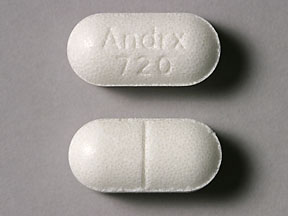
Potassium Chloride Crys ER Coupons & Savings Card – Discount Prices from $18.95
Generic for: Klor-con m10, Klor-con m20, Klor-con m15
My prescription
Edit
20MEQ, Potassium Chloride Crys ER (90 Tablet Extended Releases)
Select pharmacy

CVS
$30.31
COUPON PRICE
Albertsons
$18.95
COUPON PRICE
Walgreens
$23.35
COUPON PRICE
Walmart
$24.00
COUPON PRICEPotassium Chloride Crys ER savings card
Show this card to your pharmacist
Albertsons
$18.95
BIN
ID
PCN
GRP
011867
LHC988B1BD
HT
LABH001
Powered by
More prescriptions for hypokalemia
More prescriptions for hypokalemia
Price history for Klor-con M10 (brand) & Potassium Chloride Crys ER (generic)
90 Tablet Extended Releases, 20MEQ
Average retail price for Klor-con M10
Average retail price for Potassium Chloride Crys ER
Average SaveHealth price for Potassium Chloride Crys ER
Our price history data is based on aggregated prescription data collected from participating pharmacies in America. Our prescription data updates daily to reflect the latest price changes. If you notice a missing data point, it means there wasn't sufficient data available to generate a monetary value for that date.
We analyzed Potassium Chloride Crys ER prices for (20MEQ, 90 Tablet Extended Releases) over the last 12 months. The average retail price was $58.47, while the average price using the SaveHealth discount card was $19.51. That's a savings of approximately 66.63% when using our Potassium Chloride Crys ER coupon.
Compared to the generic version, Klor-con M10 had an average price of $54.50 over the same time period. With the SaveHealth savings card, Potassium Chloride Crys ER is 64.20% cheaper on average than Klor-con M10.
*Retail prices are based on pharmacy claims data, and may not be accurate when we don't have enough claims.
Potassium Chloride Crys ER dosage forms
Dosage Quantity Price from Per unit 10MEQ 1 Tablet Extended Release $2.64 $2.64 10MEQ 4 Tablet Extended Releases $3.08 $0.77 10MEQ 15 Tablet Extended Releases $4.66 $0.31 10MEQ 30 Tablet Extended Releases $6.83 $0.23 10MEQ 33 Tablet Extended Releases $7.26 $0.22 10MEQ 45 Tablet Extended Releases $8.99 $0.20 10MEQ 60 Tablet Extended Releases $11.16 $0.19 10MEQ 90 Tablet Extended Releases $21.99 $0.24 10MEQ 100 Tablet Extended Releases $23.43 $0.23 10MEQ 180 Tablet Extended Releases $36.81 $0.20
| Dosage | Quantity | Price from | Per unit |
|---|---|---|---|
| 10MEQ | 1 Tablet Extended Release | $2.64 | $2.64 |
| 10MEQ | 4 Tablet Extended Releases | $3.08 | $0.77 |
| 10MEQ | 15 Tablet Extended Releases | $4.66 | $0.31 |
| 10MEQ | 30 Tablet Extended Releases | $6.83 | $0.23 |
| 10MEQ | 33 Tablet Extended Releases | $7.26 | $0.22 |
| 10MEQ | 45 Tablet Extended Releases | $8.99 | $0.20 |
| 10MEQ | 60 Tablet Extended Releases | $11.16 | $0.19 |
| 10MEQ | 90 Tablet Extended Releases | $21.99 | $0.24 |
| 10MEQ | 100 Tablet Extended Releases | $23.43 | $0.23 |
| 10MEQ | 180 Tablet Extended Releases | $36.81 | $0.20 |
| 10MEQ | 270 Tablet Extended Releases | $42.07 | $0.16 |
| 10MEQ | 360 Tablet Extended Releases | $47.32 | $0.13 |
| 10MEQ | 500 Tablet Extended Releases | $55.50 | $0.11 |
| 10MEQ | 1000 Tablet Extended Releases | $84.70 | $0.09 |
| 15MEQ | 30 Tablet Extended Releases | $1.01 | $0.03 |
| 15MEQ | 100 Tablet Extended Releases | $6.99 | $0.07 |
| 15MEQ | 500 Tablet Extended Releases | $21.75 | $0.04 |
| 20MEQ | 90 Tablet Extended Releases | $24.00 | $0.27 |
| 20MEQ | 1 Tablet Extended Release | $2.67 | $2.67 |
| 20MEQ | 3 Tablet Extended Releases | $3.00 | $1.00 |
| 20MEQ | 6 Tablet Extended Releases | $3.50 | $0.58 |
| 20MEQ | 10 Tablet Extended Releases | $4.17 | $0.42 |
| 20MEQ | 12 Tablet Extended Releases | $4.50 | $0.38 |
| 20MEQ | 15 Tablet Extended Releases | $5.00 | $0.33 |
| 20MEQ | 30 Tablet Extended Releases | $7.50 | $0.25 |
| 20MEQ | 45 Tablet Extended Releases | $10.00 | $0.22 |
| 20MEQ | 60 Tablet Extended Releases | $12.50 | $0.21 |
| 20MEQ | 80 Tablet Extended Releases | $20.20 | $0.25 |
| 20MEQ | 100 Tablet Extended Releases | $25.66 | $0.26 |
| 20MEQ | 120 Tablet Extended Releases | $28.99 | $0.24 |
| 20MEQ | 135 Tablet Extended Releases | $33.62 | $0.25 |
| 20MEQ | 180 Tablet Extended Releases | $39.80 | $0.22 |
| 20MEQ | 240 Tablet Extended Releases | $44.30 | $0.18 |
| 20MEQ | 270 Tablet Extended Releases | $46.55 | $0.17 |
| 20MEQ | 500 Tablet Extended Releases | $63.80 | $0.13 |
| 20MEQ | 1000 Tablet Extended Releases | $101.30 | $0.10 |
Potassium Chloride Crys ER Warnings
Potassium Chloride Crys ER Side Effects
Common side effects:
- upset stomach
- nausea
- vomiting
- gas
- diarrhea
Less common but important to monitor:
- difficulty or pain when swallowing
- feeling as though the tablet is stuck in your throat
Serious side effects:
- vomit that resembles coffee grounds
- persistent stomach or abdominal pain
- black, tarry stools
- rash
- itching or swelling particularly around the face, tongue, or throat
- severe dizziness
- trouble breathing
